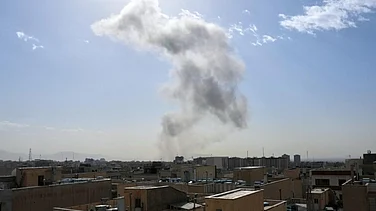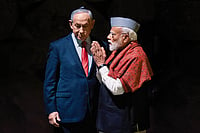In an act of solidarity with Hamas and the people of Gaza, Yemen’s Houthis have launched missile and drone attacks and disrupted shipping on the Red Sea. Though ships carrying supplies to Israeli ports are the target and those not stopping in Israel have nothing to fear, shipping lines are avoiding the Red Sea.
More than 103 ships are taking the longer route to avoid the Suez Canal and adding a distance of over 6,000 nautical miles by going around the Cape of Good Hope. This disruption has led to an escalation of costs that will hike the prices of all products being carried in the containers. The Houthi threat has led the US to announce a 10-country naval coalition to protect shipping interests in the Suez Canal. This will further escalate tension in the region and may even draw more countries into the conflict. The United States has shot down four drones launched by Yemen's Houthis. A drone attack also hit a cargo ship off the Gujarat coast. The US claims Houthis launched the drone.
Roughly 19,000 ships cross the Suez annually, particularly for fossil fuels and goods moving between Asia and Europe. An extended disruption will lead to shortages and inflation. Much will depend on the situation on the ground and whether Israel agrees to a ceasefire.
The Houthis are Shia’s and are backed by Iran. The US and Western allies dub them Iranian proxies, much like the Shia militants of Iraq and Lebanon’s Hezbollah. While Iran itself is not involved, realizing that would be playing into the hands of both the US and Israel, waiting for an opportunity to strike at the Islamic state. Instead, it has got the Islamic Shia groups in all three countries to target Israel and US forces in Iraq. Syria too has been bombed both by Israeli and American jets where Islamic militants are taking potshots on US interests in the region.
The US bases in Iraq and its interests across the Middle East will be targeted. Iraqi Shia groups are also out to get the Americans. Hezbollah on the border with Israel have been doing their bit, skirmishes between the Hezbollah fighters and Israeli army are on, but more so missile and rocket fire from both sides. However, so far Hezbollah is operating at a local level aiming to irritate and keep the IDF busy, but has not tried to go in for a larger operation.
"The aim is to put as much pressure as possible to get Israel to agree to a ceasefire. By getting all the Shia groups to aim at Israeli and American interests, at a basic low-intensity attrition attacks to bring home to the international community that the entire Middle East can get out of hand if the war does not stop," says Talmiz Ahmad an Indian diplomat and scholar. None of the groups – Houthis, Hezbollah, or the militants in Iraq are using the more sophisticated weapons they have in their arsenal, says Ambassador Ahmad. They merely want to give a preview of what can happen if Israel continues the carnage. He further adds that Iraq is a "tinder box’" that can erupt at any time. Over 100 attacks aimed at Americans were reported from Iraq. The US has accused Iran of actively facilitating rocket and drone attacks in Iraq. Tehran has denied it. Iran’s foreign minister Hossein Amirabdollahian has made it clear that Tehran “neither gives orders to the resistance groups across the region, nor stop them from taking decisions in their own countries based on their interests."
The Houthis are a Zaydi Shiite group that ruled Yemen for 1,000 years till their government was overthrown in 1962. Zaydism is the third-largest branch of Shia Islam. Since being stripped of political power the Houthis have struggled to restore their influence in Yemen. The Houthis felt threatened that their religious practices and way of life were under threat by Salafist preachers backed by the Sunni rulers. A movement to revive Zaydis began in the 1980s gathered momentum and finally led to years of civil war since 2004. The Houthis took control of the capital Sanaa in 2014 and took control of northern Yemen. The Saudis sent in their forces and the civil war continued till the UN brokered a ceasefire between Saudi-controlled coalition forces and Houthi rebels. The Sunni-Shia rivalry in the region helped to keep the civil war going but now with the détente between Saudi Arabia and Iran the situation is less tense.
Little is known about the ideology of the Houthis except that they are closely aligned with Iran and are anti-Israel and anti-Ameria. "Death to Israel and Death to America" are shouts heard when Houthi fighters launch rocket and drone attacks from Yemen.



























